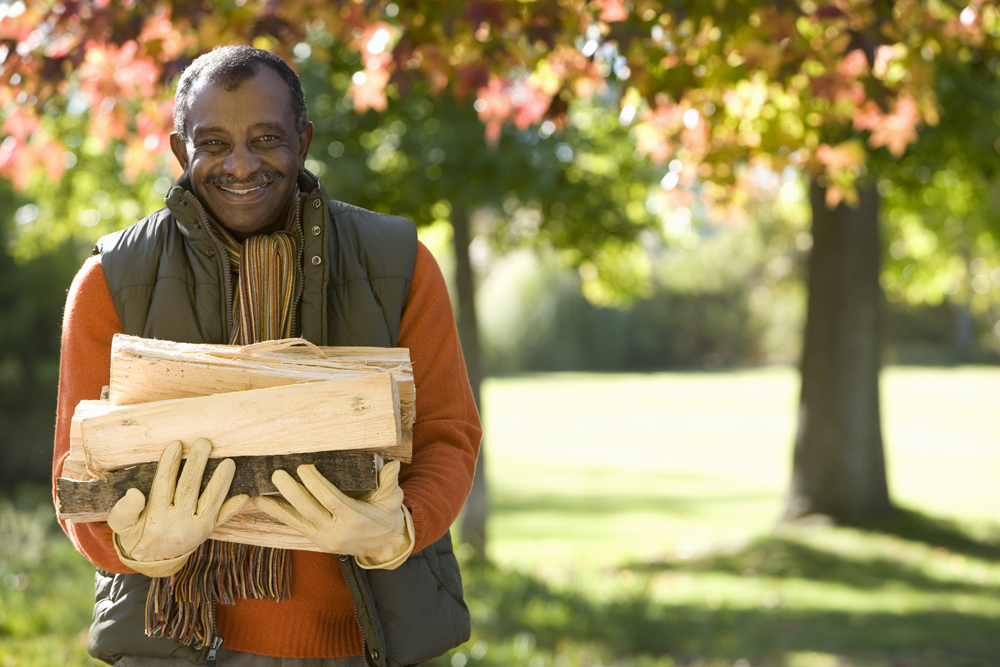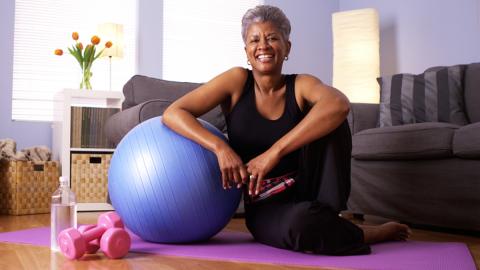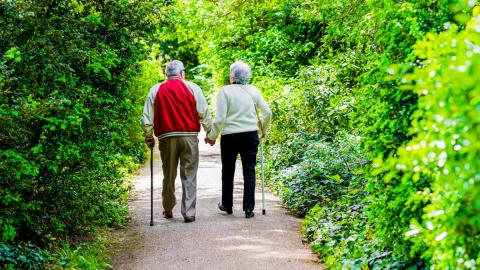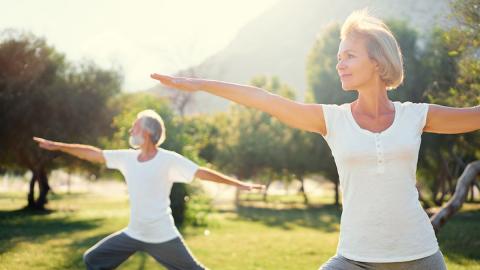Older people sometimes find it harder to remain independent in their own homes. Getting in and out of the bath, climbing the stairs or going to the shops can become more difficult as our bodies change over time.

Most of us want to continue leading active lives at home though and there are many benefits in doing this, not only to our physical health but also to mental wellbeing.
Keeping active helps to ward off depression and anxiety, while staying happier can mean living longer. And simple, regular exercise is a key factor in keeping healthy, happy and independent into older age.
How can I help myself?
Do what you can to stay as healthy and fit as possible – for example, follow a good diet, do plenty of exercise and get regular health checks from your GP.
Choose exercise that will keep your muscles and joints strong and flexible, as well as being good for your heart and lungs. Exercise has benefits for mental health too, and keeping active also encourages a good night's sleep, boosting your immune system and your body's healing ability.
If you notice your balance or your vision becoming worse, find out about preventing falls and how to make sure your home is safe, free from clutter and other hazards.
Ensure you are receiving all the carer support available. Find out about any aids and adaptations to your home that will make day-to-day activities easier; for example a bath seat, a stair lift, or rails to help you on and off the toilet.
Be open to suggestions about equipment or offers of help from other people. Accepting help does not mean losing your independence – on the contrary, accepting support when it's needed can help you to stay in your own home and in control.
If you need more help, ask for an assessment from your local health and social care team. They may also be known as a re-enablement team or independent living team. They will look at how much carer support you might need and any adaptations to your home that would make it safer and easier for you to move around and manage.
How can physiotherapy help?
A physiotherapist can help you to deal with some of the problems that might arise by giving advice, carrying out an assessment or providing treatment. For example, they can:
- advise on how to deal with any difficulties you might have moving around your home or getting out and about
- advise on how to reduce the risk of falls
- advise on, and treat, any pain or loss of function you might experience
- tell you how much and what type of physical exercise is right for you
- tell you about any equipment and adaptations to your home that would help you.
Find a chartered physiotherapist near you with the CSP’s Physio2u online member directory. You can search by location and/or by specialism. Many NHS and independent sector services are listed here. Alternatively, speak to your GP.
Physiotherapists often work closely with occupational therapists. Both take a holistic approach, looking at your individual health and fitness, physical ability and your home environment. A physiotherapist will tend to focus more on restoring and developing your movement and physical activity, while an occupational therapist will concentrate more specifically on activities of daily living and the aids and adaptations that can help you. Some health and social care teams include physiotherapists and occupational therapists, while others have close links to them.
Top Tips
If you are struggling to manage at home, speak to your GP or local health and social care team. Many different types of help are available
- Stay active. Fitness is vital whatever your age or physical ability. Choose an activity that you enjoy or can do with other people, and see just how much better it can make you feel. Swimming, walking, cycling and dancing, for example, are not only good exercise and but good social activities too
- If you’re struggling with aches and pains or having difficulties with walking, balance, or other physical activities, physiotherapy may be able to help. In some areas you can refer yourself to a physiotherapist (see link CSP website) or you can speak to your GP
- Ensure you have plenty of social contact through clubs, activities or perhaps your local library. An active social life is good for your mental health and general sense of wellbeing
- Be aware of falls prevention advice
- Look after your feet and see your GP or a chiropodist about any problems.
Links and further information
- Advice on independent living: www.independentliving.co.uk
- College of Occupational Therapy: www.cot.co.uk
- For advice on benefits such as Disability Living Allowance: www.ageuk.org.uk/money-matters/claiming-benefits
DISCLAIMER: Physical activity should not cause any harm. If you do experience any pain or discomfort, stop immediately and speak to a health professional such as a chartered physiotherapist or your GP.


